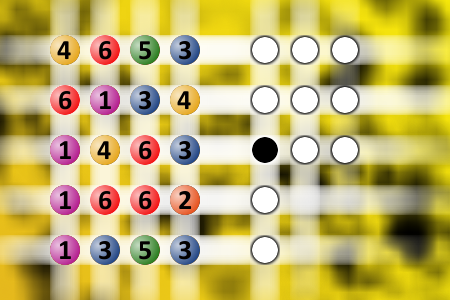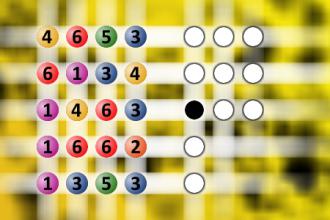What a winning combination?
The computer chose a secret code (sequence of 4 digits from 1 to 6). Your goal is to find that code. Black circles indicate the number of hits on the right spot. White circles indicate the number of hits on the wrong spot.Correct answers: 17
The first user who solved this task is Nasrin 24 T.
#brainteasers #mastermind

Sherlock Holmes in Heaven
Sherlock Holmes stood at the Gates of Heaven pulling at his pipe awaiting his turn. "I'll let you in," said St. Peter, gesturing toward the heavenly throngs behind him, "if you'll tell me who among these was the first mortal.""Elementary, my dear St. Peter," said the great detective, "he's the one without a bellybutton."

